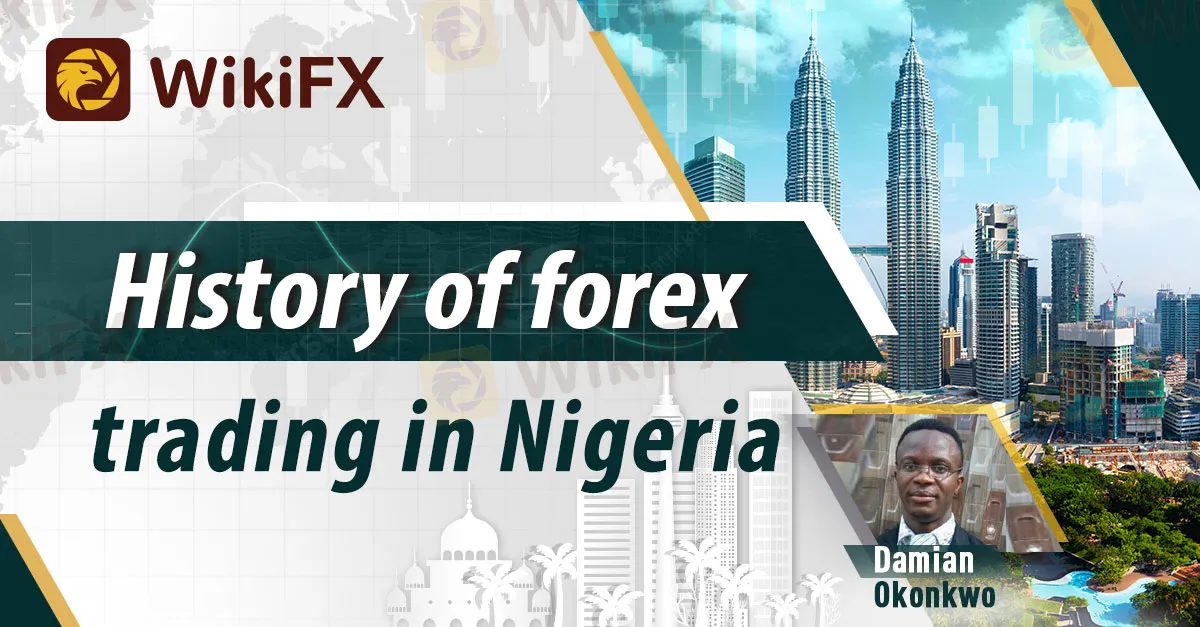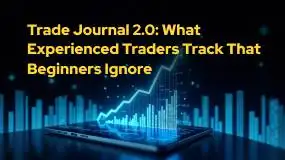简体中文
繁體中文
English
Pусский
日本語
ภาษาไทย
Tiếng Việt
Bahasa Indonesia
Español
हिन्दी
Filippiiniläinen
Français
Deutsch
Português
Türkçe
한국어
العربية
History of forex trading in Nigeria
Abstract:Forex trading is relatively new in Nigeria. The history of forex trading in Nigeria can be traced back to the 1980s, when the government introduced the Structural Adjustment Program (SAP).

By: Damian Okonkwo

What is forex trading?
Forex trading, also known as foreign exchange trading, is the buying and selling of currencies to make a profit from the fluctuation in their values. In Nigeria, forex trading has become increasingly popular over the years, with a growing number of individuals and businesses engaging in the practice. However, the history of forex trading in Nigeria is relatively short, and it is important to understand how it all began.
History of forex trading in Nigeria
The history of forex trading in Nigeria can be traced back to the 1980s, when the government introduced the Structural Adjustment Program (SAP). The SAP was a set of economic policies aimed at addressing the economic challenges facing the country at the time, including inflation, the balance of payment deficits, and a rapidly depreciating currency. One of the key measures introduced under the SAP was the liberalization of the foreign exchange market.
Before the SAP, the Nigerian government operated a fixed exchange rate regime, where the value of the naira was fixed against the U.S. dollar. However, the fixed exchange rate system had led to a shortage of foreign exchange, which made it difficult for businesses to import essential goods and services.
Under the liberalized exchange rate system, the naira was allowed to float against other currencies, which made it easier for businesses to access foreign exchange.
The liberalization of the foreign exchange market, therefore, paved the way for the emergence of forex trading in Nigeria.
Initially, forex trading was mostly limited to banks and other financial institutions, but over time, individuals and small businesses began to participate in the market. The growing popularity of forex trading was fueled by the increasing availability of online trading platforms, which made it easier for anyone with an internet connection to participate in the market.
However, the growth of forex trading in Nigeria has not been without challenges. One of the biggest challenges has been the issue of fraud and scams, with many individuals and businesses falling victim to unscrupulous traders and brokers. The Nigerian government has taken steps to address this issue, including the introduction of regulations to govern the activities of forex brokers and traders.
In 2016, the Central Bank of Nigeria (CBN) introduced a new forex policy aimed at stabilizing the naira and addressing the country's foreign exchange challenges. Under the new policy, the CBN restricted access to foreign exchange for certain goods and services, including some essential items like food and medicine. This move was criticized by some forex traders and businesses, who argued that it would negatively impact the economy.
Despite the challenges facing the forex market in Nigeria, it continues to grow, with a growing number of individuals and businesses participating in the market. The growth of forex trading in Nigeria has been driven by factors such as the availability of online trading platforms, the increasing ease of access to foreign exchange, and the potential for high profits.
Conclusion
The history of forex trading in Nigeria is relatively short, with the market emerging in the 1980s following the introduction of SAP. The liberalization of the foreign exchange market paved the way for the growth of forex trading in Nigeria, which has been fueled by the increasing availability of online trading platforms. While the market has faced challenges such as fraud and scams, the potential for high profits continues to attract individuals and businesses to participate in the market.

Disclaimer:
The views in this article only represent the author's personal views, and do not constitute investment advice on this platform. This platform does not guarantee the accuracy, completeness and timeliness of the information in the article, and will not be liable for any loss caused by the use of or reliance on the information in the article.
Read more

Trade Journal 2.0: What Experienced Traders Track That Beginners Often Ignore
A Trading Journal is more than a basic record of trades. It’s a learning and improvement tool. Beginners often jot down only price and time. Experienced traders add deeper insight that helps them get better over time. Here's what they track:

Thailand-Cambodia War Pressures Thai Baht in Forex Market
The ongoing conflict between Thailand and Cambodia has put immense pressure on the Thai Baht, impacting the forex market and investor sentiment. Read on for more.

6 Red Flags to Notice Before Investing in Neuron Markets
Investment scams have been rising over the last 5–6 years. Therefore, you need to be alert in the forex market, as many scam brokers are active and waiting to exploit inexperienced investors and traders. Neuron Markets is one such broker that appears genuine and makes big promises but ends up swindling investors’ money. Checkout red Flags and stay Safe

Future of Forex in India: Growth or Global Domination?
Every Trader or Investor in India who wants to invest in the dynamic forex market must read this important article. It explores the future of the forex market in India and answers a common question: Forex market will rise or crash in India ? Checkout the article below.
WikiFX Broker
Latest News
Samsung Electronics signs $16.5 billion chip-supply contract; shares rise
Does XS.com Hold Leading Forex Regulatory Licenses?
European stocks set to rise after the U.S. and EU strike trade agreement
Elon Musk confirms Tesla has signed a $16.5 billion chip contract with Samsung Electronics
Chile Bumps Up Copper Price Forecast and Flags Lagging Collahuasi Output
Global week ahead: Crunch time for trade talks as Trump's deadline nears
Top Wall Street analysts recommend these dividend stocks for regular income
Stock futures rise as U.S.-EU trade deal kicks off a hectic week for markets: Live updates
Treasury yields tick lower as investors look ahead to Fed's interest rate decision
Bitget Lists Caldera for Spot Trading | What Should You Know?
Currency Calculator


